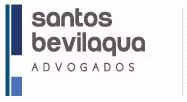Insurance industry at a glance
Registered firms
313
(authorized insurers, pension companies, local reinsurers and registered foreign rensurers)
R$ 274 billion
Value of Premia
R$ 108,5 billion
Value of private health insurance and plans
Even with the pandemic, the Brazilian insurance market had a good performance in 2020, with stable loss ratios and low decrease of premiums. At the same time, paradigmatic changes in the regulations are being implemented.
- The product regulation is being simplified and reduced.
- Insurers and local reinsurers were divided into categories by their size and lines, with reduced regulatory burden to smaller insurers.
- A sandbox with 20 companies is fully operational.
In addition, the open finance is already subject to a public hearing to be completed in the next weeks, with the new rules to be affective probably in 2021.
Furthermore, we did not see in Brazil many important issues related to claims associated to the pandemic. Business interruption coverages, for example, are almost always clearly linked to physical damages. In the life side, all the insurers decided to cover COVID-19 losses, without discussing the wording of the contracts.
Open Finance
The open finance, if implemented in the insurance sector in the way planned by the Brazilian insurance supervisor, will change the face of the market.
There is already a public hearing about open insurance, and the open insurance process is linked to the open banking process, that was already initiated by the Central Bank.
Some resistance is expected, mostly by the bigger companies and the companies controlled by banks, and there is the real risk of delays, but the fact that the open finance project is being conducted by SUSEP (the insurance supervisor) and the Central Bank almost together suggests that it will be implemented in 2021, creating more opportunities to innovators.
2022 elections
The impacts of the pandemic in the economy fuelled the political polarization between right and left, more specifically between supporters of the President Bolsonaro and Workers Party supporters. It has been a pattern in Latin America in the last year.
This polarization is causing a lot of political and economic instability and a lack of efficiency in the management of the pandemic.
In this context, we tend to not see, until the end of 2022, the implementation and even the discussion about important reforms needed by the country, mostly tax reform, administrative reform and political reform.
There is an expectation of other alternative political solutions to be built before the presidential election in 2022, but at this moment nothing is clear
" " Our economy has been performing relatively well in the pandemic, but we need to overcome the political polarization to go ahead. "
Insurance Product regulation
The Brazilian insurance regulation traditionally standardized products and contracts had mandatory clauses and rules. It has created an environment where discussions about products were an institutional issue, more than an individual business decision. It has been causing a lack of innovation.
This is a result of, mostly, the reinsurance monopoly from 1939-2008 and of the historically bureaucratic supervision executed by SUSEP.
It is changing very rapidly now, in a process that is led by the elimination of rules by SUSEP and by the consistent availability of reinsurance. The process is also fuelled by digitalization, changes in the economic environment and consumers needs and a fully operational sandbox.
As a result increased competition among insurers for the best products will be a trend in coming years.
"Competition for the best products is a new trend in the Brazilian insurance market. It is a great moment to innovate. "
To view newsletters, please click here
The content of this article is intended to provide a general guide to the subject matter. Specialist advice should be sought about your specific circumstances.


